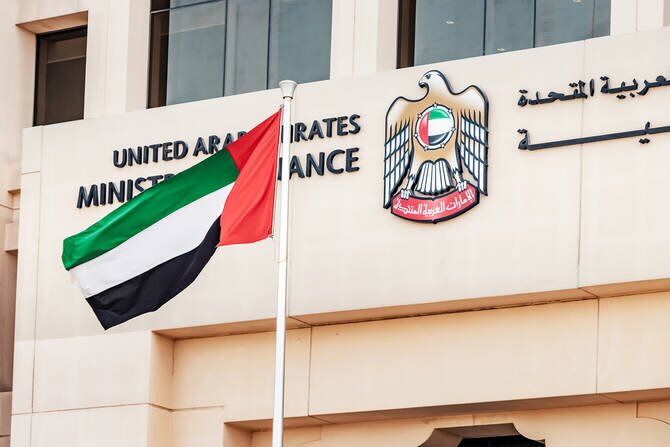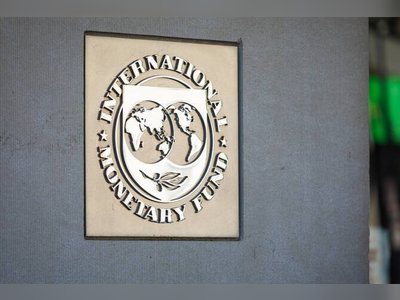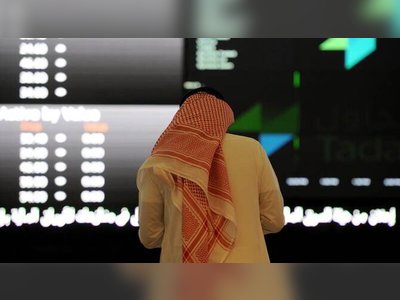
UAE Introduces AI-Driven Budget Cycle for 2027–29, Emphasizing Modernization and Strategic Alignment
The UAE Ministry of Finance unveils an AI-driven, performance-based federal budget cycle to enhance fiscal management and align spending with national development goals.
The United Arab Emirates (UAE) has inaugurated its federal budget cycle for the years 2027–29, integrating advanced artificial intelligence technology into a performance-oriented approach aimed at propelling national advancement.
This initiative is part of broader efforts by the UAE to modernize public financial administration and bolster fiscal sustainability while ensuring government spending remains aligned with key national priorities.
The Ministry of Finance announced this new budget framework alongside the unveiling of the federal government's strategic planning cycle, 'Towards Achieving We the UAE 2031,' championed by Sheikh Mohammed bin Rashid Al-Maktoum, vice president and prime minister of the UAE.
The budget's total value across the last four cycles has amounted to a substantial 900 billion dirhams ($245 billion), underscoring the economic significance of these initiatives.
Sheikh Maktoum bin Mohammed bin Rashid Al-Maktoum, first deputy ruler of Dubai and minister of finance, highlighted the necessity of this modernized financial system.
He emphasized that realizing the UAE's vision to 2071 requires a financial mechanism capable of adapting to global changes and directing resources towards transformative opportunities.
The Ministry of Finance is actively investing in intelligent tools and sophisticated analytical models designed to optimize financial efficiency, maximize impact, and support data-driven decisions aligned with national development goals.
The ultimate goal, according to the government, is to transform the federal budget into an instrument that fosters sustainable growth and enhances the quality of governmental services.
The new budget cycle prioritizes sectors directly impacting citizens' lives, including education, healthcare, social welfare, and essential government services.
It also aims to foster integration among federal entities and encourage spending on initiatives supporting long-term economic sustainability.
In recent years, the Ministry of Finance has undertaken various regulatory and digital reforms to bolster financial governance.
Notably, public debt remained stable at 62.1 billion dirhams as of June 2025, while federal assets increased to approximately 464.4 billion dirhams by the end of 2024, showcasing the UAE's robust fiscal standing.
According to Mohamed bin Hadi Al-Hussaini, minister of state for financial affairs, this budget cycle signifies a transition towards results-based governance and enhanced institutional efficiency.
The Ministry of Finance has not only pursued legislative and digital reforms but also redesigned the entire budgeting process in response to these strategic objectives.
This initiative is part of broader efforts by the UAE to modernize public financial administration and bolster fiscal sustainability while ensuring government spending remains aligned with key national priorities.
The Ministry of Finance announced this new budget framework alongside the unveiling of the federal government's strategic planning cycle, 'Towards Achieving We the UAE 2031,' championed by Sheikh Mohammed bin Rashid Al-Maktoum, vice president and prime minister of the UAE.
The budget's total value across the last four cycles has amounted to a substantial 900 billion dirhams ($245 billion), underscoring the economic significance of these initiatives.
Sheikh Maktoum bin Mohammed bin Rashid Al-Maktoum, first deputy ruler of Dubai and minister of finance, highlighted the necessity of this modernized financial system.
He emphasized that realizing the UAE's vision to 2071 requires a financial mechanism capable of adapting to global changes and directing resources towards transformative opportunities.
The Ministry of Finance is actively investing in intelligent tools and sophisticated analytical models designed to optimize financial efficiency, maximize impact, and support data-driven decisions aligned with national development goals.
The ultimate goal, according to the government, is to transform the federal budget into an instrument that fosters sustainable growth and enhances the quality of governmental services.
The new budget cycle prioritizes sectors directly impacting citizens' lives, including education, healthcare, social welfare, and essential government services.
It also aims to foster integration among federal entities and encourage spending on initiatives supporting long-term economic sustainability.
In recent years, the Ministry of Finance has undertaken various regulatory and digital reforms to bolster financial governance.
Notably, public debt remained stable at 62.1 billion dirhams as of June 2025, while federal assets increased to approximately 464.4 billion dirhams by the end of 2024, showcasing the UAE's robust fiscal standing.
According to Mohamed bin Hadi Al-Hussaini, minister of state for financial affairs, this budget cycle signifies a transition towards results-based governance and enhanced institutional efficiency.
The Ministry of Finance has not only pursued legislative and digital reforms but also redesigned the entire budgeting process in response to these strategic objectives.










